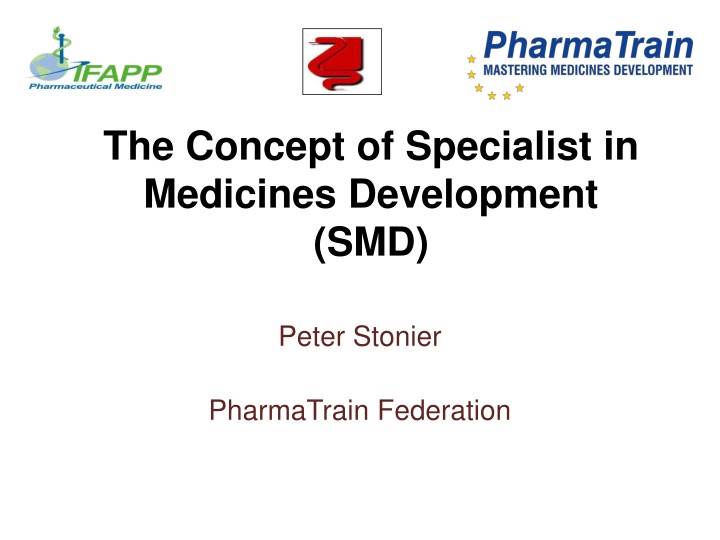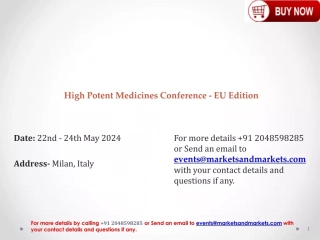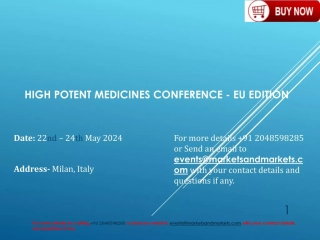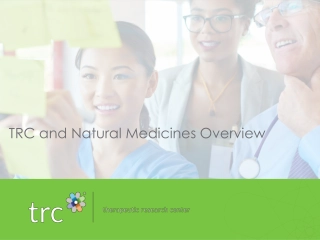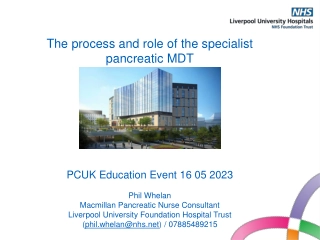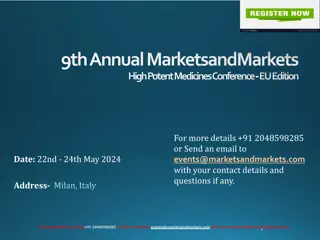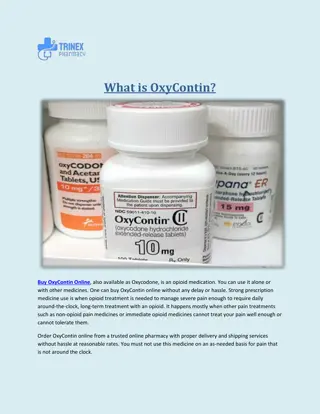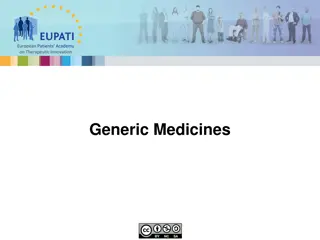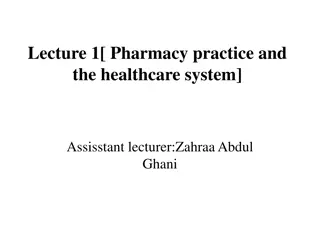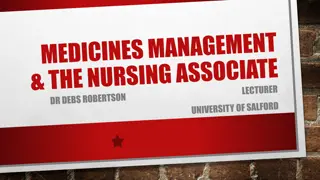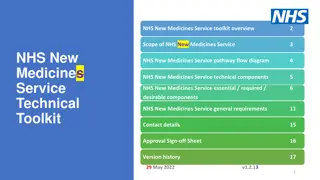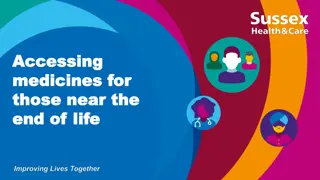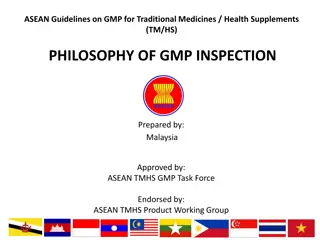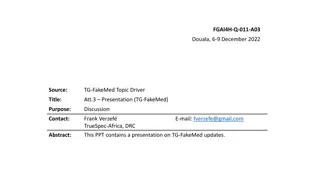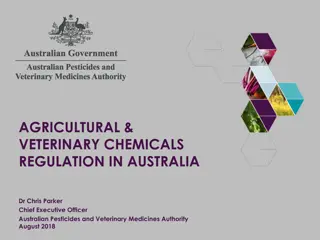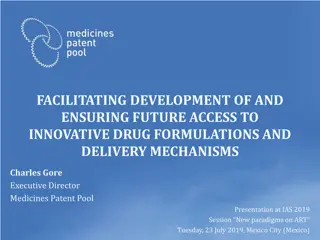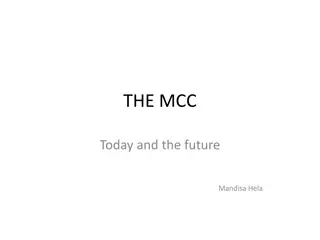Specialist in Medicines Development Overview
The Specialist in Medicines Development (SMD) concept provides education and training in Pharmaceutical Medicine and Medicines Development Science. With over 50 years of development in the field, it offers competency-based curriculum domains and certification upon program completion. The concept originated from the establishment of professional associations, postgraduate courses, the Faculty of Pharmaceutical Medicine, and international harmonization efforts. The PharmaTrain Syllabus covers various sections including Discovery of Medicines, Clinical Trials, Regulatory Affairs, and Healthcare Economics.
Download Presentation

Please find below an Image/Link to download the presentation.
The content on the website is provided AS IS for your information and personal use only. It may not be sold, licensed, or shared on other websites without obtaining consent from the author.If you encounter any issues during the download, it is possible that the publisher has removed the file from their server.
You are allowed to download the files provided on this website for personal or commercial use, subject to the condition that they are used lawfully. All files are the property of their respective owners.
The content on the website is provided AS IS for your information and personal use only. It may not be sold, licensed, or shared on other websites without obtaining consent from the author.
E N D
Presentation Transcript
The Concept of Specialist in Medicines Development (SMD) Peter Stonier PharmaTrain Federation
What is the SMD concept? Education & training in Pharmaceutical Medicine / Medicines Development Science. For all professionals in medicines development. Mentored, workplace-centred. Competency based 7 Curriculum Domains. Knowledge base PharmaTrain Syllabus. Certificated outcome on satisfactory completion of indicative 4-year programme.
CONCEPT OF SPECIALIST IN MEDICINES DEVELOPMENT >50 Years Education & Training in Pharmaceutical Medicine SPECIALTY of PHARMACEUTICAL MEDICINE Competency Based Education SMD CONCEPT IFAPP FACULTY PHARMATRAIN PHARMATRAIN SYLLABUS CURRICULA & COURSE PROVIDERS ALL Scientific Discipline of Pharmaceutical Medicine / Medicines Development PROFESSIONALS
Where did SMD concept come from? (>50 years Development of E&T in PM/MDS) 1958 - Professional associations (keep up-to-date, seminars, networking etc). 1973 - IFAPP (International Federation of professional Associations) 1976 - Post graduate courses & Diplomas in Pharmaceutical Medicine (Syllabus & Curricula) 1989 - Faculty of Pharmaceutical Medicine (Standard-setting in PM) 1993 - Masters degrees in PM (for all professionals) 1994 - IFAPP international harmonisation of E&T in PM/MDS Common Syllabus Accreditation of courses (IFAPP CEPM) Fostering Specialty recognition of PM 1999 - Recognition of medical specialty of PM (Switzerland, Ireland, UK) Specialist training programmes physicians Competency-based training 2009 - PharmaTrain EU platform of E&T in PM/MDS for all professionals; academic (Dipl. & MSc) and vocational (SMD) tracks proposed.
PharmaTrain Syllabus for Pharmaceutical Medicine / Medicines Development Science (V2.0) [13 sections, 161 topics] Discovery of Medicines Development of Medicines: Planning Non-Clinical Testing Pharmaceutical Development Exploratory Development (Molecule to Proof-of-Concept) Confirmatory Development Clinical Trials Ethics and Legal Issues Data Management and Statistics Regulatory Affairs Drug Safety, Pharmacovigilance and Pharmacoepidemiology Information, Promotion and Education Economics of Healthcare, Health Economics, and Pharmacoeconomics
The Discipline of Pharmaceutical Medicine / Medicines Development Science o History, Career structure o Evidence base Efficacy, safety & effectiveness of medicines. Comparative drug profiling. Mode of action. Clinical pharmacology: PK & PD. Procedures, processes, quality. o Own research methodology Clinical trials, statistical methods, epidemiology, drug safety evaluation, pharmacoeconomic evaluation. o Literature and science base Journals devoted to pharmaceutical medicine, clinical pharmacology, clinical research, GCP, pharmacovigilance. o Standards Knowledge & competency based, Continuing Professional Development, re- certification, ethics, codes of conduct; Faculty of Pharmaceutical Medicine, PharmaTrain. o Syllabus / curricula / training /Examination system Diplomas, Specialty Training CCT programme, Masters programmes, PhD degrees, Certification of practitioners.
Evolution of education and training in Pharmaceutical Medicine / Medicines Development Professional bodies training, keeping up to date, support, networking Common syllabus and core curricula Approved training courses Examinations / qualifications Specialty recognition / accredited training Certificated specialists International standards / harmonisation of training Mutual recognition of certificates / qualifications Maintenance of certification through CPD
Specialty listed Pharmaceutical Medicine in Europe 2006 Approved courses Other courses
PharmaTrain IMI P-16: Pharmaceutical Medicine / Medicines Development Science Training Programme To provide a Europe-wide comprehensive solution to training needs of integrated drug development (sciences) for all professionals involved, incl. physicians, pharmacists, pharmaceutical scientists, biologists, biometricians, health economists, safety & regulatory scientists from universities, regulatory agencies, all industry as well as research ethics committees & investigators. To create a new programme of studies in pharmaceutical medicine / medicines development science leading to a Postgraduate Masters / Specialist qualification and certification.
Competency-based education (CBE) (The key to SMD) SMD applies CBE. Outcomes-based education. Learner driven, personalised, self-directed vocational E&T. Syllabus fixed & the topics define the subject universe. Curricula personalised & result from personal learning and practical experiences. Competencies assessed according to level expected and stage of development. Lends itself to adult E&T, learning styles, speeds & preferences, and part-time modular programmes. Knowledge-base learning outcomes mapped to practical competencies curriculum. Competencies (knowledge, skills, attitudes & behaviours) are the building blocks of professional competence profiling.
SMD ANALOGUE PROGRAMME Pharmaceutical medicine specialist training in UK 2003-2015 500+ pharmaceutical physicians have enrolled into PMST, a competency-based in-work programme. 270 Certificates of Completion of Training have been awarded. 65 companies & organisations are participating currently. 70% of competencies curriculum is achieved in work. First Certificates presented in May 2005 150 active trainees.
CBE contd. Personal competence profile links to job competencies profile. Statement of competence & professional relevance. Jobs and levels have a competence profile. Opportunities for synergies and collaborations; between jobs, levels and disciplines based on competence profiling.
Statement of Competence: Statement of competence: pharmaceutical physician / medicines development professional Medicines Development Professional Communication, management & leadership Discovery of medicines & early development Healthcare marketplace Ethics and Subject Protection Clinical development & clinical trials Drug safety surveillance Medicines regulation
Self-Assessment What learning opportunities can help me? What How can I consolidate the learning & become competent? competencies do I need for my work & what are the gaps?
Job & Career Development Executive Entry level Personal competence profile Senior Competency-based Job profile: 3 levels Learning experiences / training opportunities Gap Analysis
SMD: From Concept to Curriculum & Beyond SMD an example of Competency-based education & training. Potential to meet industry needs for training: short courses, learning outcomes, certification, relevance to role & business aims, adaptable & flexible. Understood in terms of jobs, levels, corporate change, transferable skills, career planning & development. Competency profile for pharmaceutical physicians has been defined: a Statement of Competence is available for professional use. Personal competency profiles can be related to job profiles & career development. Work in progress for further alignment of competency profiles, core competencies, jobs & performance, inter-professional working. Work in progress on further collaboration in clinical research & pharmaceutical medicine for education & training, competence development & improved performance in medicines R&D.
TEXT HERE SUMMARY SMD is a competency-based, workplace-centred education and training certification programme in medicines development, comprising a knowledge base of the PharmaTrain Syllabus, delivered & assessed through modular curricula, and the acquisition & demonstration of competencies for medicines development across seven domains of the competency curriculum.
TEXT HERE SUMMARY Through SMD, personal competence profiles meet job competencies profiling appropriate to industry environment of job fit, role levels, job developments & movements, business planning and personal & professional progress & career development. SMD concept offers flexible, high standard, vocational training for all professionals in medicines development.
